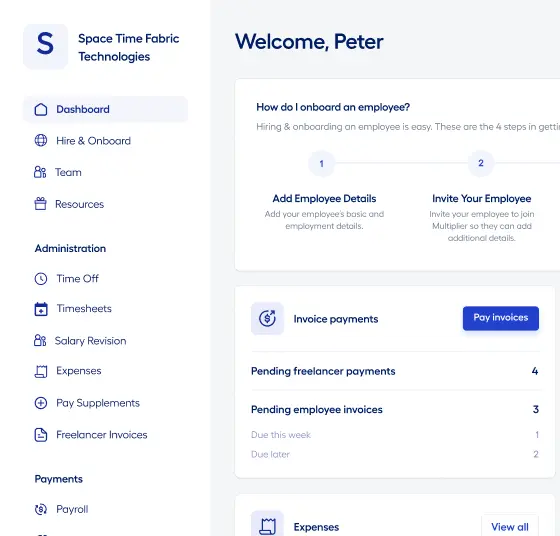Cross-cultural communication and cultural sensitivity are important requirements in business negotiations, especially if international business expansion on the back of successful global teams is the agenda.
For instance, as a sign of respect in Japan, it’s common practice to exchange business cards, or “meishi,” with both hands and examine them before putting them away. In contrast, European countries resort to formal greetings and handshakes.
Cultural sensitivity fosters mutual respect, trust, and effective communication, which are essential for building strong relationships and running business operations across borders. Failure to acknowledge cultural nuances can lead to misunderstandings, people taking offense, and ultimately, business failure.
Navigating cultural challenges in global interactions
Understanding different cultures can be exhausting when building or expanding a business.
However, recognizing essential aspects such as communication styles and cultural norms, amongst others, can help you to navigate the complexities of cultural diversity and better comprehend the challenges inherent in cross-cultural interactions.
Communication styles
Understanding communication styles is crucial for international business success as it forms the foundation for effective cross-cultural interactions. Communication styles vary significantly across cultures, influencing how information is conveyed, interpreted, and understood.
Differences in communication styles can lead to misunderstandings and hinder collaboration. For example, in some cultures, indirect communication is preferred, while others value directness. This can affect business negotiations and decision-making.
Example: In Japan, communication tends to be more indirect, with an emphasis on politeness and maintaining harmony. This can sometimes lead to misinterpretations for individuals accustomed to more direct communication styles.
Cultural norms and etiquettes
Cultural norms and etiquette vary significantly across regions and can impact business interactions. For instance, gestures or behaviors considered polite in one culture may be perceived as offensive in another.
Example: In some Middle Eastern cultures, it’s considered impolite to show the soles of your shoes, as they’re perceived as unclean. Therefore, crossing your legs in a way that exposes the sole of your shoe during a business meeting may be seen as disrespectful.
Time perception
Different cultures have varying perceptions of time, which can affect punctuality and scheduling. Understanding cultural attitudes towards time is essential for effective planning and coordination.
Example: In some cultures, such as Germany or Switzerland, punctuality is highly valued, and arriving late for meetings is considered disrespectful. In contrast, in countries like Brazil or India, meetings may start late and attendees could take a more relaxed approach to timekeeping.
Decision-making processes
Cultural differences in decision-making processes can influence the way business decisions are made and implemented. Some cultures prioritize consensus-building and group input, while others emphasize hierarchical decision-making.
Example: In Scandinavian countries, decisions are often made through consensus, with input from all team members valued equally. In contrast, in hierarchical cultures like Japan, decisions may be made by senior leaders, with less input from junior employees.
Negotiation styles
Negotiation styles vary based on cultural preferences and can impact the outcome of business deals. Therefore, understanding cultural negotiation tactics and strategies is essential for successful negotiations.
Example: In Chinese culture, negotiators often employ the “win-win” approach, focusing on building long-term relationships and mutual benefits. In contrast, negotiators in Western cultures may adopt a more competitive and assertive approach.
With cultural competence, empathy, and open-mindedness, businesses build trust, strengthen relationships, and thrive in diverse markets.
Five proven strategies for overcoming cultural sensitivity challenges and promoting exceptional cross-cultural communication in global teams
Proactively strategizing to overcome cultural sensitivity challenges ensures that it becomes an integral part of the organizational culture.
It empowers businesses to foresee and address potential challenges, build stronger relationships with diverse stakeholders, and leverage cultural diversity as a competitive differentiation in global markets.
1. Cross-cultural training
Implement cross-cultural training programs to educate employees about different cultural norms, values, and communication styles. These programs can help team members develop a deeper understanding of cultural diversity and navigate cross-cultural interactions more thoughtfully and effectively.
Example: Hosting workshops or seminars where employees learn about cultural dimensions with frameworks like the Hofstede’s cultural dimensions model can provide valuable insights into cultural differences and similarities.
2. Encourage open dialogue
Create a culture of open dialogue and encourage team members to share their cultural perspectives and experiences. Facilitating open discussions about cultural differences can foster mutual understanding and appreciation.
Example: Organizing regular team meetings or virtual forums where team members can share cultural anecdotes, discuss cultural challenges, and brainstorm for solutions can promote open communication and collaboration.
3. Foster cultural curiosity
Encourage team members to embrace curiosity and actively seek opportunities to learn about different cultures. Encouraging curiosity can spark interest in cultural diversity and motivate employees to engage in cross-cultural learning experiences.
Example: Encouraging team members to explore cultural festivals, cuisine, literature, and traditions can inspire curiosity and deepen their appreciation for diverse cultures.
4. Lead by example
Leaders play a crucial role in promoting cultural sensitivity within global teams. Lead by example by demonstrating respect for cultural differences, actively listening to diverse perspectives, and championing inclusive practices.
Example: Senior leaders can set the tone for cultural sensitivity by participating in cross-cultural training sessions, engaging in cross-cultural dialogue, and incorporating cultural considerations into decision-making processes.
5. Appoint cultural ambassadors
Assign cultural ambassadors or mentors within teams to serve as cultural liaisons and resources for navigating cross-cultural interactions. Cultural ambassadors can provide guidance, support, and insights to team members facing cultural challenges.
Example: Nominating employees who have lived or worked in different cultural contexts as cultural ambassadors can bridge cultural gaps and facilitate intercultural understanding.
Embracing cultural diversity and fostering cross-cultural understanding can not only build an inclusive and culturally competent workforce capable of thriving in fast-paced environments but also unlock unmatched team collaboration and innovation.
Culture x tech:
Eight ways technology enables cultural sensitivity and fosters cross-cultural communication in international businesses with global teams
The right technology enables companies to streamline global HR processes, access cultural insights, and customize solutions, fostering better communication, collaboration, and understanding across diverse global teams.
1. Communication and collaboration tools
Digital communication platforms like Slack or Microsoft Teams facilitate seamless everyday interaction among global teams, enabling real-time collaboration and idea-sharing regardless of geographical location.
2. Video conferencing with international teams
Virtual conferencing tools to facilitate regular meetings and discussions with international teams. This allows employees to interact face-to-face and build rapport despite geographical distances, fostering cultural understanding and collaboration.
3. Employee recognition and reward software
Employee recognition and reward software allows team members to appreciate and acknowledge each other’s contributions regardless of cultural background.
This fosters a culture of inclusivity and appreciation, reinforcing positive behaviors and strengthening team cohesion across diverse global teams.
4. Cultural sensitivity training modules
Country-specific, personalized, and interactive online training modules covering topics such as cultural norms, etiquette, and communication styles across various regions can provide deep insights into aspects like cultural fitment and employee behaviors.
5. Cultural intelligence assessments
Cultural intelligence assessments evaluate employees’ awareness, knowledge, and skills specific to cross-border cultures. Such assessments help identify areas for improvement and fabricate targeted training initiatives.
6. Project management tools
Project management tools such as Asana or Trello streamline workflow processes and enhance transparency, enabling efficient coordination and task allocation among dispersed teams.
7. Visa and immigration support
Software solutions supporting visa and global immigration for international employees enable firsthand experiences of diverse cultures, nurturing empathy, understanding, and cultural awareness within the organization.
8. Hiring and onboarding
Demonstrating thoughtfulness during the hiring and onboarding process, such as providing comprehensive cultural orientation and utilizing EOR technologies like Multiplier for culture-specific employment contracts in local languages, ensures smooth off-shore transition and integration for new hires across diverse regions.
Unlock your global hiring potential and reach new horizons with Multiplier
Integrating cultural sensitivity:
Top nine tips for businesses considering global expansion with global teams
Putting cultural sensitivity into practice goes beyond just being a philosophy — it becomes an integral part of workplace processes and culture, outlining success metrics for both employees and the business.
By implementing cultural sensitivity in business practices, organizations can authentically embody their values and beliefs, leading to tangible benefits such as enhanced collaboration, improved employee morale, and better relationships with customers and partners.
1. Promote cross-cultural communication
Foster open dialogue and encourage employees to share diverse perspectives. Implement language training or cultural workshops to facilitate effective communication across multicultural teams.
2. Embrace diversity in leadership
Ensure leadership teams reflect diversity and inclusion. By promoting diverse voices at all levels of the organization, you create an inclusive environment where employees feel valued and empowered.
3. Implement cultural awareness training
Offer training programs to educate employees on cultural differences and norms. This helps prevent misunderstandings and promotes respect for diverse backgrounds and experiences.
4. Adapt business practices to cultural context
Tailor business strategies and practices to align with cultural norms and values in different regions. This demonstrates sensitivity to local customs and fosters positive relationships with stakeholders.
5. Encourage cross-cultural collaboration
Create opportunities for employees from different cultural backgrounds to collaborate on projects. This promotes teamwork, creativity, and mutual understanding among diverse team members.
6. Recognize and celebrate cultural holidays
Acknowledge and celebrate cultural holidays and customs to demonstrate respect for diverse traditions. Encourage employees to share their cultural heritage with colleagues through events and activities.
7. Provide resources for cultural learning
Offer access to resources such as books, articles, and online courses on cultural sensitivity and diversity. This empowers employees to deepen their understanding of different cultures and perspectives.
8. Establish a culture of inclusion
Foster an inclusive work environment where all employees feel valued, respected, and supported. Encourage collaboration, empathy, and mutual respect among team members, regardless of cultural background.
9. Practice what you preach
Demonstrate cultural sensitivity and inclusivity in your own actions and behavior. Serve as a role model for others by embracing diversity and promoting a culture of respect and understanding.
By making these practices measurable, organizations can track progress, hold themselves accountable, and ensure continuous improvement for both the organization and its diverse workforce.
Success stories:
Real examples of international businesses hiring with cultural sensitivity
Mindvalley, a global ed-tech leader, aimed to foster cultural inclusion among its diverse workforce.
By partnering with a global HR solutions provider like Multiplier for global payroll and compliance, they ensured fairness and consistency. By centralizing processes, employees felt valued and culturally included, enhancing collaboration. The end result: heightened team morale and efficiency, driving Mindvalley’s global success.
In another instance, a global marketing agency initiated cross-cultural visits among its employees to foster collaboration.
Facing visa and immigration hurdles, they partnered with Multiplier, an EOR adept in international HR practices, who helped them to efficiently manage visa applications and immigration for global teams, ensuring compliance with international regulations.
Consequently, streamlining the process freed resources, enabling employees to focus on actual assignments and cultural immersion. The successful partnership enhanced cross-cultural understanding, fostering innovation and collaboration across global teams. As a result, the agency experienced increased employee satisfaction and business growth in diverse markets.
In both these cases, cultural sensitivity, supported by global HR solutions providers like Multiplier, played a crucial role in driving business success by fostering better relationships, enhancing productivity, and facilitating smoother operations in diverse cultural contexts.
Try Multiplier for global business success
Cultural awareness is a strategic imperative for sustained growth and success in international business through global teams.
Investing in the right tools plays a key role in achieving cultural sensitivity across cross-border teams. By partnering with a global HR solutions provider like Multiplier, you can give your business the confidence to sidestep cross-cultural employment challenges and ensure equity across teams.
From global payroll and compliance to employee benefits and ESOP administration, Multiplier provides a world-class employee experience and creates a sense of equity, transparency, and efficiency.
Learn how Multiplier’s international HR practices can transform your cross-border teams.
FAQs
Q. What is culture in international business?
Culture in international business refers to the beliefs, values, practices, and attitudes of organizations that impact business functions and the strategic direction enterprises take. Business culture influences management and employees’ professional interaction within and outside the organization.
Q. Why is culture influential in international business?
Culture is essential in international business because it influences how multinational and cross-cultural teams interact and collaborate. It dictates the business world’s values, etiquettes, thinking patterns, decision-making, practices, and processes.
Q. What are the major cultural factors that affect international business?
The major socio-cultural factors that significantly impact international businesses are culture, etiquette, religion, language, customer preferences, education level, customs and taboos, and attitude towards foreign goods and services.







